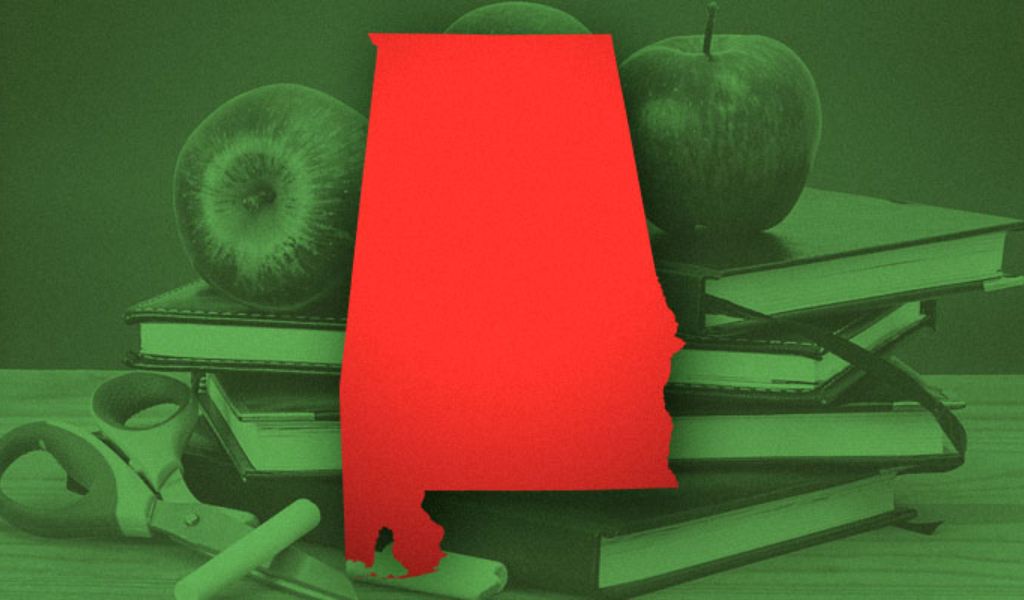Legislation that would significantly expand the number of Alabama schoolchildren with affordable school choice options was passed by the House of Representatives on Tuesday.
The goal of the CHOOSE Act (HB129) is to provide parents greater control over their children’s education by providing private and religious schools as alternatives to the public schools in their area that are designated by their residential zones. It primarily presents parents with the opportunity to apply for an Education Savings Account (ESA) with a maximum value of $7,000.
Children may be enrolled with this fund in another eligible public school or in an accredited public school outside of their district that charges tuition and accepts transfers. Applying for a $2,000 ESA can help families who want to homeschool pay for curriculum and instructional materials from state-approved vendors. The maximum amount of assistance that is available for homeschooling households with several children is $4,000.
Following enactment, Speaker of the House Nathaniel Ledbetter (R-Rainsville) declared, “A student’s zip code has no business in determining the quality of their education, and I have no doubt the CHOOSE Act will ensure that is no longer the case.” “I am grateful for Governor Ivey’s initiative on this matter and eager to see this legislation through to completion.”
“Here in Alabama, we are working hard to ensure that every child has the opportunity to choose an educational path that best helps them grow and learn,” stated state representative Danny Garrett, the chairman of the House Education Budget committee.
“I am happy of my House colleagues for voting to forward this measure, as the CHOOSE Act would give families throughout Alabama an additional option. Garrett praised Governor Ivey for elevating this issue to the top of her legislative agenda and added, “I’m happy to be a sponsor of a fantastic school choice bill that maintains the historic funding we are providing to public education while also being accountable.”
The majority of House Democrats were against this bill.
“How are we ever going to get better if we keep pulling away from public education?” asked Representative Barbara Drummond (D-Mobile). “School vouchers are the only thing this bill represents.” According to Drummond, parents in Garrett’s (Trussville) and her district (Mobile) have the option of sending their children to private schools, but this is not the situation in many rural counties.
According to Garrett, “this will provide a funding vehicle that might provide an option for that area.”
According to Garrett, this iteration of HB129 is a replacement that takes into account the issues raised by the education sector, particularly their need for increased accountability and transparency. He clarified that a private school “has to be a member of one of these institutions that are fully accredited” in order for it to take part.
“It is an issue when you deprive public schools of even a single dollar,” stated Representative Juandalynn Givan (D-Birmingham). “This is just another instance of segregation,”
In the Democratic Primary on March 5, Givan is vying to represent the Second Congressional District of Alabama.
“This is the height of absurdity,” Givan remarked. “With this money, we could have built better schools in these rural places. With this, we could have compensated our professors. Because they are struggling to make ends meet, some instructors are fleeing Alabama like the wind.
According to Garrett, “our Legislature has a constitutional duty to provide every child with a free public education.”
Garrett clarified that the original funding originates from a supplemental allocation rather than the education trust fund (ETF). According to Garrett, the state is spending $370 million more on K–12 public education this year than it did last, and it has a record $9.5 billion ETF.
“Teachers in private schools are exempt from certification requirements,” stated Drummond. “Public schools are being deprived of those dollars.”
According to Garrett, “the private sector has more freedom and flexibility in who teaches your curriculum and how they establish their curriculum.”
The payment will be means tested for the first two years of the programme, with a maximum limit of 300% of the federal poverty line.

